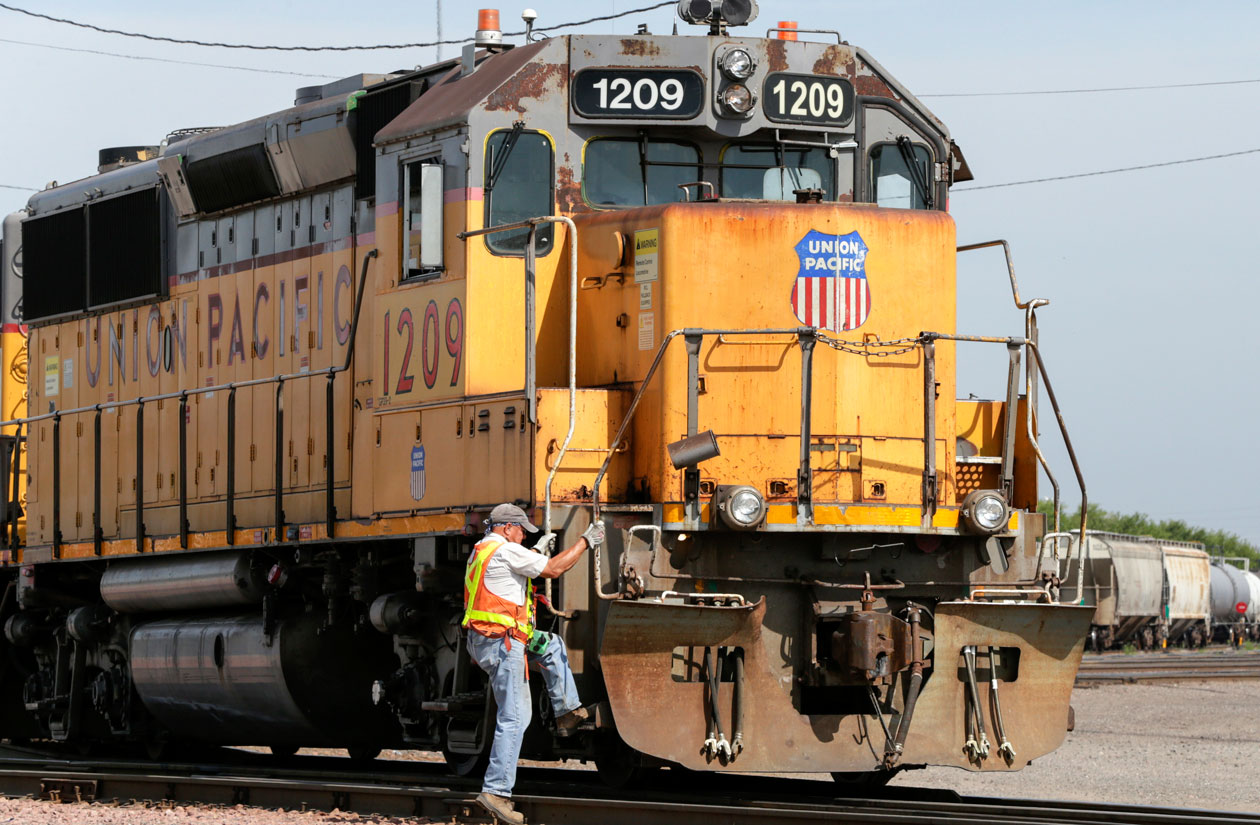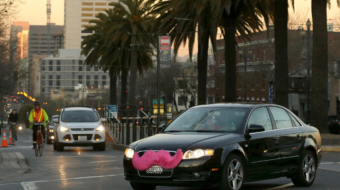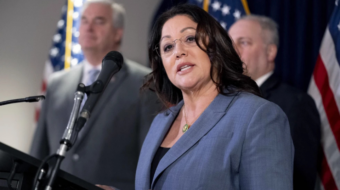
WASHINGTON
URGENT UPDATE: Contact your senator
By a 221-207 vote, the House this afternoon put the Senate, President Biden, and freight railroads all on the spot, adding seven days of paid sick leave to a previously passed freight railroad contract. Three Republicans joined all 218 Democrats in voting for paid sick days.
Rail workers and their allies are urged to contact their senators to lobby for paid sick leave. Call the U.S. Capitol switchboard at 202-224-3121 and ask for your senator’s office.
The main contract, with zero sick days, was OKd 290-137, and freight rail bosses cheered it before the lawmakers added the sick days. The bosses urged senators not to tinker with the basic pact (in other words, leave off the sick days) and its 24% raise over five years. It had little change in onerous working conditions. Sick days were the main issue which landed the mess on Capitol Hill before a Dec. 9 strike deadline kicked in.
The two House votes, and attaching the sick days to the main pact, put the Senate on the spot for scheduled votes on Dec. 1, where a confluence of odd bedfellows, ranging from Sens. Bernie Sanders, I-Vt., and Kirsten Gillibrand, D-N.Y., on the left to Josh Hawley, R-Mo., Ted Cruz, R-Texas, and Marco Rubio, R-Fla., have all vowed to oppose any imposed contract without sick days. Biden backed the basic contract, without sick days.
The AFL-CIO strongly supported both the basic pact and the added paid sick days.
“While the tentative agreement unions negotiated this year included many critical gains—significant wage increases, caps on health care premiums, and prevention of crew reduction—it also fell short by not including provisions on paid sick leave or fair scheduling. It’s now up to Congress to do the right thing by passing paid sick days for rail workers,” the federation declared.
Senator Bernie Sanders declared on national television Tuesday night that it was time to “put up or shut up” for anyone in Congress who claims to fight for the working class. Sanders and other progressive lawmakers in Congress are rallying around an amendment to insert seven days of paid sick leave into the labor agreement that the Biden administration has now asked Congress to impose upon the workers.
“If you are a supporter of the working class how are you going to vote against a proposal which guarantees paid sick to workers who have none now?” he demanded to know.
With a vote in the House coming as early as today, Sanders was asked whether Congress has the authority to require that sick leave—the remaining critical demand of rail workers unions who have been fighting the railroads all year—be added to the agreement that congressional lawmakers have been asked by President Joe Biden to impose upon the workers. The mantra originating from the rail bosses is that a strike would destroy the economy. The response from the two unions that rejected the deal has been that this makes it all the more imperative that the dignity of the workers be recognized by giving them paid sick leave.
“Congress has the power to come up with an agreement in order to protect the economy,” said Sanders. While he said no one who wants a strike, the “bottom line” in this fight is obvious.
“The bottom line,” said Sanders, “is that the American people and workers throughout this country are profoundly disgusted by the kind of corporate greed that we are seeing. Everybody knows that billionaires are getting richer, working people are struggling, corporate profits are at an all-time high, and their making goods unaffordable for ordinary Americans—that’s the overall reality. And what you’re seeing in the rail industry is that phenomenon in spades.”
Citing statistics that show the major rail carriers have made an estimated $21 billion in profits over the last three quarters, another $25 billion in stock buybacks to enrich their wealthy investors, and multi-million dollar salaries to top executives, Sanders slammed the fact that the railway workers themselves “have zero—underline zero—guaranteed sick leave.”
Last night, Rep. Jamaal Bowman (D-N.Y.) introduced an amendment in the House that would add seven paid sick days to the labor contract proposal that was negotiated with the help of the White House earlier but later rejected by a number of the railway unions because there was no provision for sick leave.
With the strike deadline looming, Biden on Monday made union members and progressives in Congress angry by asking Congress to force through the previous contract deal without pushing for the inclusion of sick leave.
At first, House Speaker Nancy Pelosi backed Biden’s call to force through the original deal “with no poison pills or changes to the negotiated terms.” But she backed down late last night by saying two votes will be held.
“First, we will consider the strike-averting legislation to adopt the Tentative Agreement, as negotiated by the railroad companies and labor leaders. Next, we will have a separate, up-or-down vote to add seven days of paid sick leave for railroaders to the Tentative Agreement. Then, we will send this package to the Senate, which will then go directly to President Biden for signature.”
With Sanders vowing to fight for his amendment in the Senate, there are indications that it is possible that there may be enough Republican support for adding the paid sick leave to prevent a filibuster in that chamber. Sens Josh Hawley and Ted Cruz have both said they may back the Sanders amendment.
Asked if he thought he could get the ten necessary votes from the GOP in the Senate, Sanders said, “Well, who knows?” as he mentioned that Sen. John Cornyn (R-Texas), the party caucus whip, has indicated “significant” support for the amendment among Republicans.
“Look, you have a number of Republicans who claim—claim—to be supporters of the working class,” he added. “Well, if you are a supporter of the working class how are you going to vote against the proposal which provides guaranteed paid sick leave to workers who have none right now? So I am cautiously optimistic that we can get this done.”
Strong support for the addition of sick days to the deal, of course, is coming from the labor movement nationally.
“Rail workers are an integral part of the supply chain that makes America’s economy run,” declared Liz Shuler, president of the AFL-CIO. “As essential workers, they showed up day in and day out through the pandemic to keep our country moving forward. They deserve good wages, fair treatment, and vital protections like paid sick leave.”
“To be clear,” Shuler added, “rail companies could do the right thing today and grant workers paid sick leave. But they’ve refused, putting profits over people. That’s how we got here. Regardless of what happens in the next few days, the fight for paid sick leave won’t end. Calling workers “essential” one minute and treating them as dispensable the next is abhorrent. We join rail workers—and all America’s workers—in securing paid sick leave, fair scheduling, and the dignity and respect they deserve.”
Several rail union leaders, plus a top rank-and-file group, are protesting Biden’s request to Congress to impose a new contract on the nation’s 115,000 freight rail workers.
Biden made his request after members of four of the 13 rail unions in bargaining with the big Class I freight railroads rejected the contract proposal union leaders and railroad bosses worked out with administration mediation and pressure, in mid-September.
Leaders of all 13 unions have promised their members would honor picket lines if bosses force a strike.
Unions whose members bounced the contract included one of the largest, the Brotherhood of Maintenance of the Way Employees/Teamsters. It has 23,000 members. Workers at two other large unions split. The Locomotive Engineers and Trainmen/Teamsters narrowly approved it and the Smart-Transportation Division narrowly rejected it.
Working conditions, especially the lack of paid sick leave and the railroads’ practice of docking workers who miss days, even for doctors’ appointments, until they can fire the workers, are the key issue in the rejections. The Biden-named board ducked that issue.
A glaring issue in the pandemic
“This became a glaring issue during the pandemic when we had members who were forced by their employers, the railroads, to stay home and quarantine without pay,” Michael Baldwin, president of the Railroad Signalmen, told CNN. “But really it comes down to simple things like the flu for a day or two, or a sick child, and the ability to take a day or two paid.” His union was one of the four that voted the deal down.
“BMWED’s proposal would literally cost one penny of every dollar of the railroads’ record profits assuming full use by every single member. It is less than 2% of the $11.5 billion that CSX, Norfolk Southern, and Union Pacific have spent alone on stock buybacks through the third quarter of 2022,” the union explained after its members rejected the pact.
“There’s a sense of hopelessness amongst a number of working railroaders,” Ron Kaminkow of Railroad Workers United, the rank-and-file group which led the campaign for “no” votes, told Politico. RWU wanted railroaders “to just vote ‘no’ if they actually believe that this thing is not good. Don’t be conned into voting for something that you really don’t want.”
“We need public pressure, not just on Congress but on the railroads, too,” BLE&T/Teamsters Legislative Director Jared Cassidy told the Rick Smith Show, then repeated in a series of tweets. “They need to know the public is on our side. We need to have sick days, time off, the ability to be spouses, and to be treated with respect.”
The old contract also forced workers to toil for as much as two to three weeks straight and let railroads demand, on little notice, on workers’ one day off afterward, that they come in and sub for absent colleagues, triggering two more weeks. That didn’t change, either.
The big freight railroads, including Burlington Northern Santa Fe and Union Pacific, have cut their workforces by 29% since 2014 while racking up a combined $146 billion in profits, all in response to Wall Street capitalists’ demands. The result: Mass shortages of workers and frequent delays, worsened during the coronavirus pandemic.
In his statement, Biden was sympathetic to workers’ problems but said a strike would disrupt U.S. supply chains for everything from oil to cars to drinking water to grain, at the height of the holiday season. Railroads carry some 30-40% of the nation’s freight. Supply chain experts told CNN, however, that the problems would occur after the shopping season.
“The deal provides a historic 24% pay raise for rail workers. It provides improved health care benefits. And it provides the ability of operating craft workers to take unscheduled leave for medical needs. Since that time, the majority of the unions in the industry have voted to approve the deal,” said Biden.
But in talks with both sides, since the voting began, Biden Cabinet members came to “believe there is no path to resolve the dispute at the bargaining table and have recommended that we seek congressional action.”
Left unsaid was that after the four unions that rejected the deal went back to bargaining with the freight rail firms, the carriers flatly refused to even discuss—much less negotiate over—more paid sick leave.
Joe Sims, national co-chair of the Communist Party told People’s World that this is a dangerous situation. “The Biden administration and Congress should in no way interfere with workers’ right to strike.” Sims said that danger points to the need for “mass working-class pressure from the ground to push Congress and the Biden administration to reverse course and ‘do the right thing.’” He noted, “The main pressure on the Biden administration so far has been from Big Business and the rail industry.”
But echoing a management prediction that a strike—which the bosses forced—would cost the economy $1 billion a day, Biden said it would endanger the jobs of 765,000 non-rail workers, many of them union members, in the first two weeks alone. “Communities could lose access to chemicals necessary to ensure clean drinking water. Farms and ranches across the country could be unable to feed their livestock,” he said.
The solution to the problem is simple. If Congress is to impose anything on anyone it should be imposing a requirement on the bosses to recognize the dignity of their workers and agree to paid sick leave.










